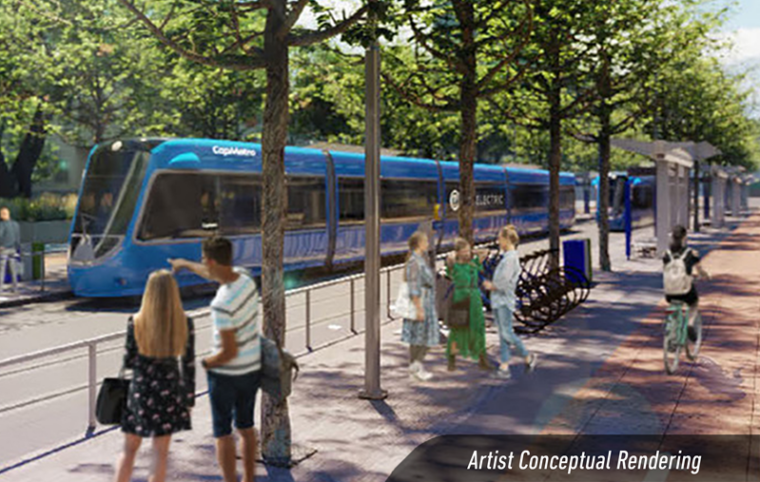
Austin is working on a public-private infrastructure academy that will help usher in the next generation of construction and transportation workers. The Austin Infrastructure Academy would provide critical services to train, support and place local residents on career pathways in infrastructure development.
“Austin is making historic investments in infrastructure projects,” Mayor Kirk Watson said in a release. “But we don’t have the workforce to get them done.”
Council members will vote on founding the “one-of-a-kind” academy next week. The city would establish the academy in time to handle a $25 billion suite of large capital projects. These projects include expanding Austin-Bergstrom International Airport, expanding Interstate 35 through downtown and Project Connect, which will add light rail lines and four public transit rapid lines.
“We can be one of the first cities that proactively plans and brings together these physical projects and the wants and needs of the people who will build and operate them,” said Watson. “The physical infrastructure together with our human infrastructure.”
Austin’s large capital projects will expand the region’s infrastructure by more than 81% by 2040. Meeting the demands of this expansion will require adding 10,000 workers annually for the next 17 years, Watson said. The city will need to maintain the labor force it already has in addition to adding 4,000 trained workers to Austin’s current capacity, he said.
If the City Council approves establishing the academy, the city manager would design and implement the program around six primary goals:
Training alignment: The academy will align training programs with in-demand skills and job sequencing, based on real-time needs identified by both job creators and job seekers.
Wraparound services: The academy will offer childcare and other wraparound services to eliminate participation barriers.
Placement and navigation: The academy will facilitate the matching of trained job seekers with job creators, improving navigation from training to job placement.
Comprehensive recruitment: The academy will develop a robust, diverse talent pipeline with a recruitment focus on underserved Austinites.
Governance: The academy will set up a governance structure that reflects stakeholder input and ensures accountability to funders.
Impact and evaluation: Leaders will create an evaluation framework to assess the impact and outcomes of the Infrastructure Academy.
“The Austin Infrastructure Academy will bring the current good work of the individual organizations in the network to scale,” Mayor Watson said. The call to establish the Austin Infrastructure Academy follows collaborative consultation with Workforce Solutions Central Texas, Capital Metro and the Austin Partnership to address the city’s mobility and infrastructure and workforce needs.
All news and information on this site is provided by the team at Strategic Partnerships, Inc. Check out this short 1-minute video that provides a quick overview of how we work with clients.
Photo courtesy of Project Connect
The post Austin infrastructure academy would train, support new workers appeared first on Government Market News.
